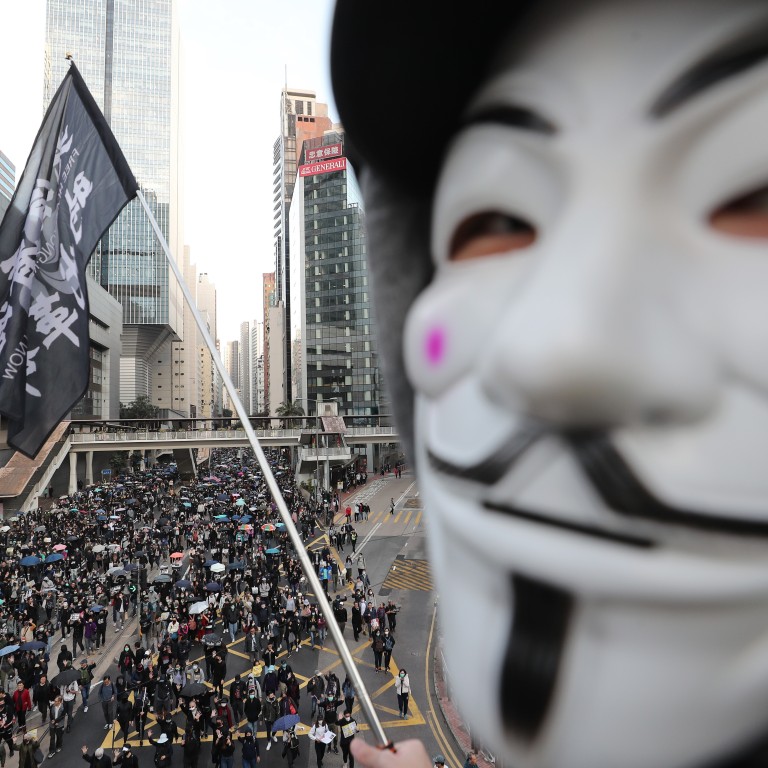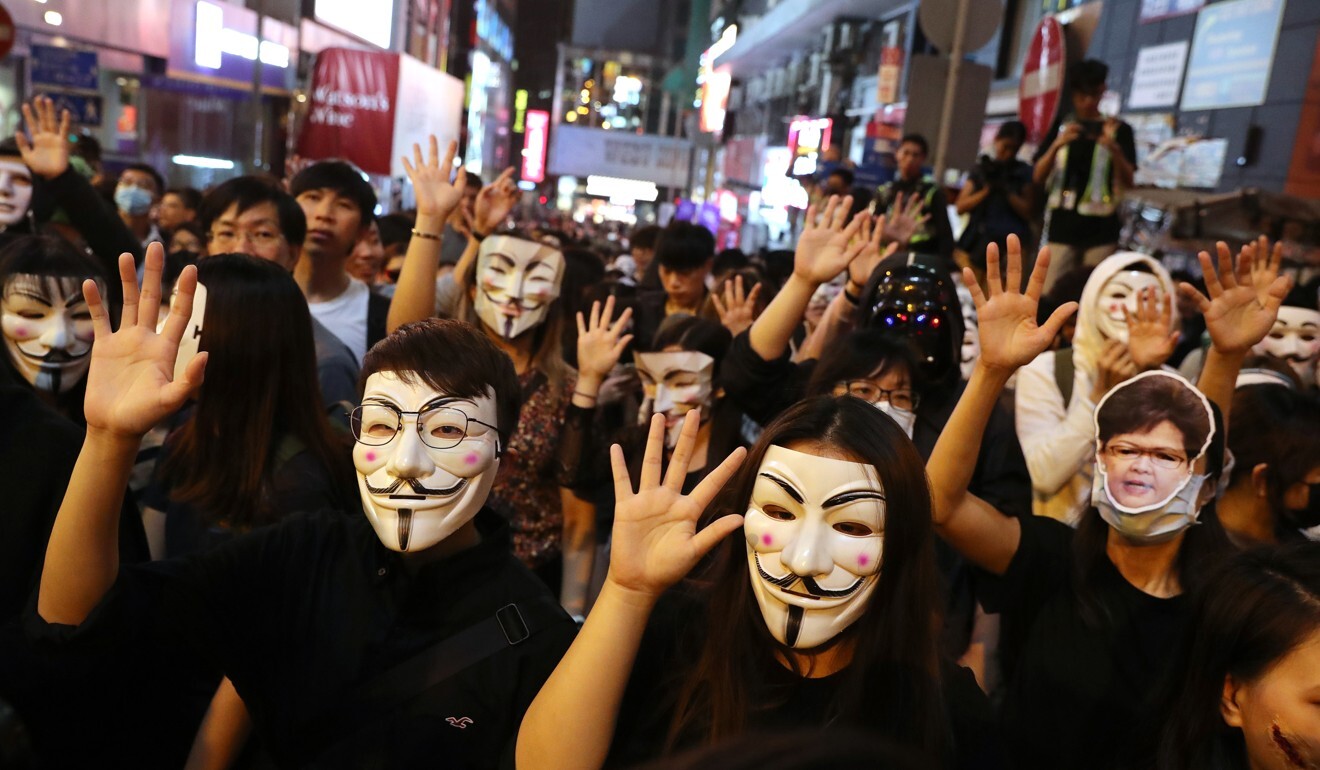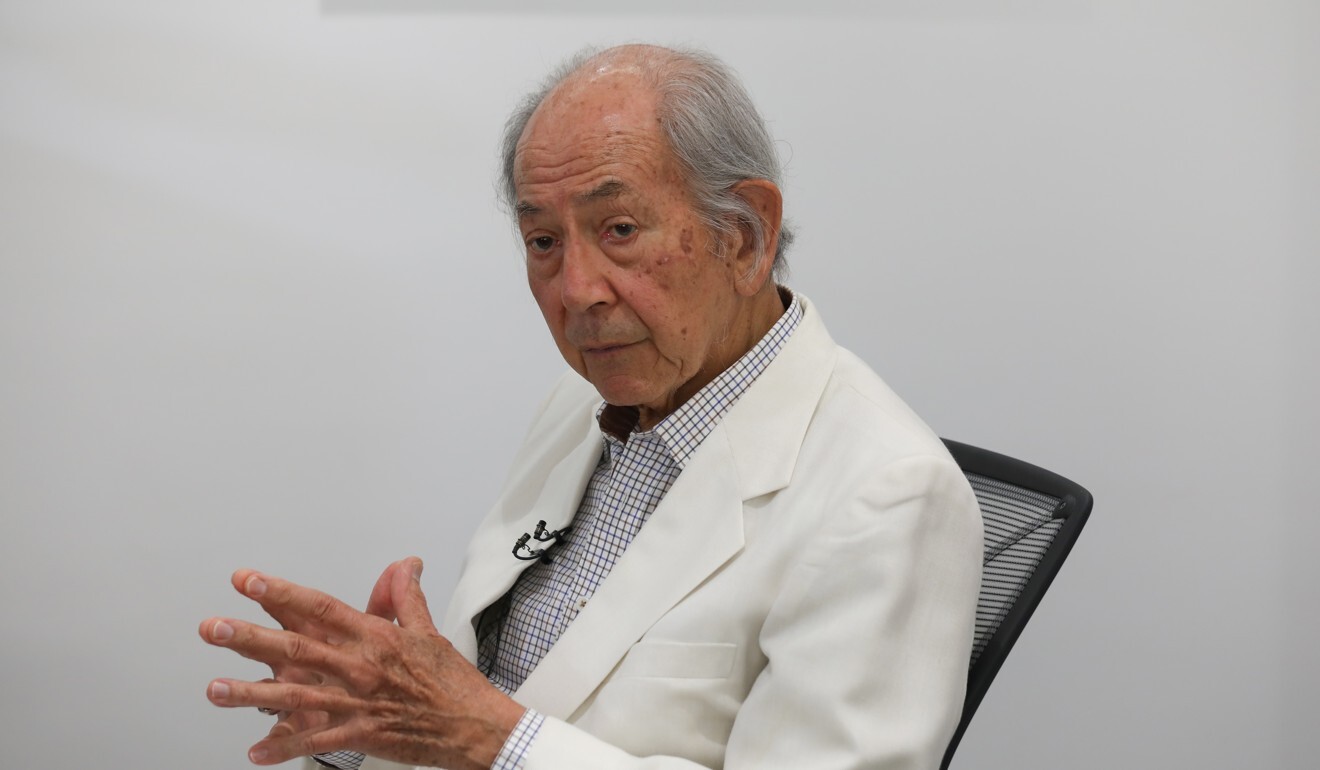
Hong Kong mask ban proponents, foes both plan to appeal recent ruling at city’s top court
- April ruling left few happy, with justice department and opposition lawmakers eager to settle issues at Court of Final Appeal
- Former top judge Henry Litton says appeal court left police in tough position by ‘yielding to ideology rather than practical considerations’
The move to take the issue to the city’s top court came as a former senior judge weighed into the debate, saying the Court of Appeal’s ruling last month was impractical and would confuse frontline officers tasked with enforcing the ban.
At the centre of the legal wrangle is the government’s use of the colonial-era Emergency Regulation Ordinance (ERO) last October to prohibit the wearing of masks in marches – legal or illegal – as protests were routinely devolving into violent clashes.

In November, the Court of First Instance ruled the anti-mask law unconstitutional, after a group of pro-democracy lawmakers filed a legal challenge against it.
But the Court of Appeal overturned part of that ruling last month, saying it was constitutional for the government to ban the wearing of masks at illegal assemblies on grounds of “public danger”. The same, however, was not true for legal demonstrations, they ruled.
The appeal judges also agreed with the first ruling that granting police the authority to physically remove masks was unconstitutional.
Legal sources said the Department of Justice and the group of 24 pro-democracy lawmakers who initially challenged the ban in court, notified the Court of Appeal on Wednesday that they intended to appeal its ruling.

Both sides must now convince the appeal court there are merits or matters of public importance that justify taking the matter to the Court of Final Appeal.
Pro-democracy legal sector lawmaker Dennis Kwok said: “We want to clarify on the constitutionality of using the ERO, and whether the ban itself is proportionate [as a restriction on rights].”
He declined to comment on the chances of overturning the ruling, but cautioned that the broad emergency powers cited by the government in initially announcing the ban could be used by the executive branch to suppress human rights.
The Department of Justice has refused to comment, saying it is still studying the Court of Appeal’s judgment in detail.
How on earth could police be expected to make a ‘case-by-case’ evaluation on the spot, when the situation is fluid and volatile?
But Henry Litton, a retired judge on the Court of Final Appeal, questioned if the courts had yielded “to ideology rather than practical considerations” by disallowing mask removal by police in public places or ruling masks could be worn during lawful marches.
“The regulations were promulgated to deal with a specific situation and for a limited duration: at a time when the resources of police were stretched to near-breaking point, and violence was likely to erupt anywhere at any time,” Litton told the Post.
He said the judges were essentially requiring officers to evaluate the situation on the ground, when authorised gatherings could quickly turn into unlawful ones.
“How on earth could police be expected to make a ‘case-by-case’ evaluation on the spot, when the situation is fluid and volatile? In the presence of imminent and pressing public danger? This is a clear case – once again – of ideology trumping common sense,” Litton said.
Mask ban legal when aimed at unauthorised protests, Court of Appeal rules
While the current mask ban has no expiry date stated, Litton said only the government would have the resources to evaluate whether the emergency or public danger had passed, and the emergency regulations would only endure so long as the situation of public danger lasted. He said he had seen nothing to suggest such powers were being abused.
Andrew Shum Wai-nam of the watchdog Civil Rights Observers, however, said the Public Order Ordinance has clear guidelines as to when an assembly or march becomes illegal.
“Police should have the professional capacity to make a judgment if the gathering has breached peace and order,” Shum said. “If police lacked such ability to make the judgment, would it [mean] officers could be enforcing the law arbitrarily?”
Too early to abandon Hong Kong’s mask ban, government advisers say
Shum added that police had increasingly used recording devices at marches, something he took issue with. “Citizens should have the right to join peaceful assemblies and also the right not to be identified,” he said.
The coronavirus pandemic this year left the mask ban in an awkward position, as most people now wear masks to prevent infection while the anti-government protests have largely quieted down.
Police on Friday said they would allow flexibility in handling the situation on the ground during the epidemic, but that they would “strictly adhere to the [Court of Appeal] ruling” when dealing with past cases and handle them prudently based on evidence and legal advice from the Department of Justice.
Prominent legal scholar Albert Chen Hung-yee, meanwhile, has said the ban should be reviewed or even repealed, as it could leave the door open for future legal challenges as to whether “public danger” still exists.
The three Court of Appeal judges said the ban was “intended to operate as an emergency measure” only.
Help us understand what you are interested in so that we can improve SCMP and provide a better experience for you. We would like to invite you to take this five-minute survey on how you engage with SCMP and the news.

